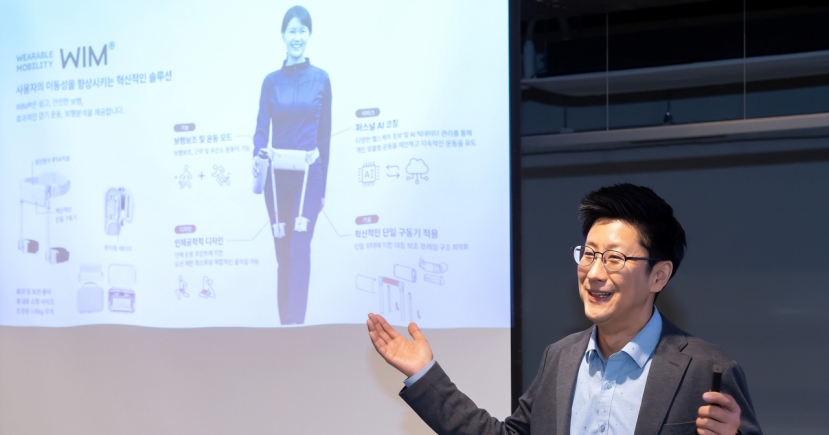Economy
Tax authority to toughen regulations on offshore tax evasion
[THE INVESTOR] The National Tax Service’s task force released a final report of recommendations on reforming the national tax system that include tougher regulations against offshore tax evasion and closely looking into the creation of borrowed-name accounts or corporate foundations to curb the abuse of power by chaebol.
“Despite continued investigations on offshore tax evasion, the practice has not been rooted out and it is becoming more intelligent under the surface,” said the task force on Jan. 29 in the report released five months after its launch.
The special team urged the tax authority to require companies to prove unreported sources of funds in foreign financial accounts. Currently, only individuals are required to prove the unreported sources.
Should the authorities catch unreported overseas assets, the companies should be levied with a fine and be forced to prove the sources, the report said. If they fail to prove the sources, they should be imposed with additional penalties.
The task force also urged the NTS to expand the exchanges of information with tax haven nations and cooperate with international bodies, such as the Joint International Taskforce on Shared Intelligence and Collaboration, to jointly respond to massive offshore tax evasion.
The recommendations came amid continued reports of tax evasion offshore. According to government data, the amount of offshore tax evasion last year stood at 1.1 trillion won, a 3.6 percent rise from a year earlier, and the figure is expected to rise this year.
Among business moguls, CJ Chairman Lee Jay-hyun was sentenced to two years and six months in 2015 for tax evasion. Out of a total of 26 billion won, he hid 4 billion won in Virgin Islands through a paper company.
Apart from offshore tax evasion, the task force also urged the government to toughen regulations on borrowed-name accounts of conglomerates.
“Large companies’ illegal transfer of inheritance is becoming more intelligent under the surface. In order to prevent illegal management succession, the government should widen the range of the investigation of borrowed-name accounts from families into relatives and employees,” the task force said.
The borrowed-name account has long been an issue for Samsung Chairman Lee Kun-hee. In December, the National Police Agency said they found Lee’s additional slush fund worth 200 billion won in around 20 borrowed-name accounts of Samsung’s former and former employees. In total, the authorities say they have so far found more than 4 trillion won of funds allegedly beloning to Lee saved in the firm’s employees since 2008.
To curb conglomerate’s illegally strengthening ownership, the task force also advised the government to impose tougher regulations on corporate foundations.
The corporate foundations are mostly set up with the aim of contributing to society through scholarships or research funds. The subsidiaries donating money to the foundations are thus given various tax benefits. Some families are reported as having used the foundations to reduce inheritance and gift taxes or strengthen the family’s power rather than spending for the needs.
“As for the corporate foundations having more than five percent stock of conglomerates or hiring employees close to owner families, the investigation should be tougher,” the special team said.
In October, the ruling Democratic Party unveiled the expenditure of 10 corporate foundations of the nation’s top eight conglomerates over the last three years. The spending in proportion to income was found to be less than 50 percent on average. Especially, Samsung Life Public Welfare Foundation and Hyundai Heavy Industries‘ Asan Foundation spent 0.69 percent and 1 percent respectively in proportion to income.
The task force’s recommendation was initially to be released in December but it was extended for reasons including the latest cryptocurrency craze and the government toying with the idea of leving tax for investment gains. The team said they recommend the government revise related laws to respond to new tax sources such as ecommerce using social networking service and virtual currency.
By Shin Ji-hye/The Korea Herald (shinjh@heraldcorp.com)
“Despite continued investigations on offshore tax evasion, the practice has not been rooted out and it is becoming more intelligent under the surface,” said the task force on Jan. 29 in the report released five months after its launch.
The special team urged the tax authority to require companies to prove unreported sources of funds in foreign financial accounts. Currently, only individuals are required to prove the unreported sources.
Should the authorities catch unreported overseas assets, the companies should be levied with a fine and be forced to prove the sources, the report said. If they fail to prove the sources, they should be imposed with additional penalties.
The task force also urged the NTS to expand the exchanges of information with tax haven nations and cooperate with international bodies, such as the Joint International Taskforce on Shared Intelligence and Collaboration, to jointly respond to massive offshore tax evasion.
The recommendations came amid continued reports of tax evasion offshore. According to government data, the amount of offshore tax evasion last year stood at 1.1 trillion won, a 3.6 percent rise from a year earlier, and the figure is expected to rise this year.
Among business moguls, CJ Chairman Lee Jay-hyun was sentenced to two years and six months in 2015 for tax evasion. Out of a total of 26 billion won, he hid 4 billion won in Virgin Islands through a paper company.
Apart from offshore tax evasion, the task force also urged the government to toughen regulations on borrowed-name accounts of conglomerates.
“Large companies’ illegal transfer of inheritance is becoming more intelligent under the surface. In order to prevent illegal management succession, the government should widen the range of the investigation of borrowed-name accounts from families into relatives and employees,” the task force said.
The borrowed-name account has long been an issue for Samsung Chairman Lee Kun-hee. In December, the National Police Agency said they found Lee’s additional slush fund worth 200 billion won in around 20 borrowed-name accounts of Samsung’s former and former employees. In total, the authorities say they have so far found more than 4 trillion won of funds allegedly beloning to Lee saved in the firm’s employees since 2008.
To curb conglomerate’s illegally strengthening ownership, the task force also advised the government to impose tougher regulations on corporate foundations.
The corporate foundations are mostly set up with the aim of contributing to society through scholarships or research funds. The subsidiaries donating money to the foundations are thus given various tax benefits. Some families are reported as having used the foundations to reduce inheritance and gift taxes or strengthen the family’s power rather than spending for the needs.
“As for the corporate foundations having more than five percent stock of conglomerates or hiring employees close to owner families, the investigation should be tougher,” the special team said.
In October, the ruling Democratic Party unveiled the expenditure of 10 corporate foundations of the nation’s top eight conglomerates over the last three years. The spending in proportion to income was found to be less than 50 percent on average. Especially, Samsung Life Public Welfare Foundation and Hyundai Heavy Industries‘ Asan Foundation spent 0.69 percent and 1 percent respectively in proportion to income.
The task force’s recommendation was initially to be released in December but it was extended for reasons including the latest cryptocurrency craze and the government toying with the idea of leving tax for investment gains. The team said they recommend the government revise related laws to respond to new tax sources such as ecommerce using social networking service and virtual currency.
By Shin Ji-hye/The Korea Herald (shinjh@heraldcorp.com)


![[From the Scene] KG Mobility poised to take next leap](http://res.heraldm.com/phpwas/restmb_idxmake.php?idx=151&simg=/content/image/2024/04/24/20240424050621_0.jpg)





